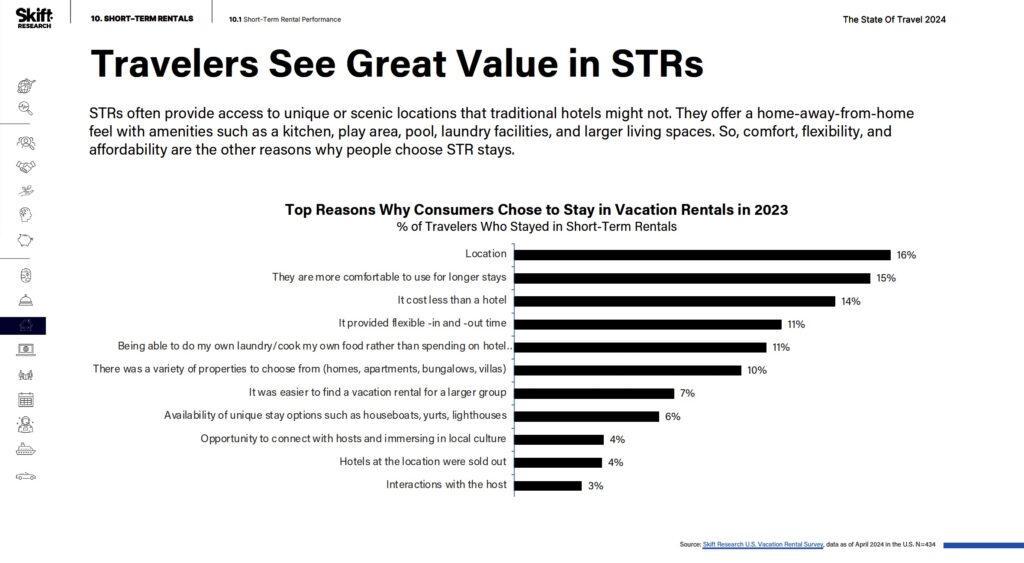Skift Take
If stiff regulation doesn’t get in the way, it is very likely that short-term rentals will take a chunk of market share from hotels. That’s why you’ll see more hotels getting into the vacation rental biz.
Hotels still dominate over short-term rentals when U.S. travelers are deciding where to stay. But several trends show the challenges hotels face â and the growth opportunities for short-term rentals.
Consider the following three charts from Skift Research’s State of Travel 2024 report.
The first shows net promoter scores â a metric that businesses use to gauge loyalty to their brand â for the first quarter of 2024: Vacation rentals beat out hotels, 63 to 51.

The second shows that the preference for vacation rentals among U.S. travelers is on the upswing, admittedly from a low base: 11% of travelers say they used a short-term rental in 2023, up from 7% in 2020. For hotels, usage declined to 56% of travelers in 2023, from 60% in 2021.
Clearly, U.S. travelers as a whole prefer hotels over vacation rentals, but that edge is being diminished.


The third chart shows the value U.S. travelers see in short-term rentals. The top reason is location (16%) because they often offer scenic views that hotels sometimes lack, according the Skift Research U.S. vacation rental survey from April 2024. Some 15% of respondents think vacation rentals are more comfortable than hotels for longer stays, and 14% value the cost advantage â they often are cheaper â versus hotels.Â


Certainly, there are many use cases where travelers see hotels as better options than short-term rentals, but these charts show that short-term rentals have a massive opportunity to further cut into hotel market share in years to come.

